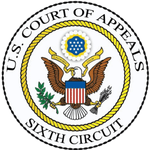
NEWS (5/15/2020) — Nebraska: The Nebraska Supreme Court ruled in favor of Nebraska media outlets and the state’s ACLU in a public records lawsuit and directed the Nebraska Department of Correctional Services to release records related to the state’s lethal-injection drugs. In BH Media Group, Inc. v. Frakes, the court ordered DOCS director Scott Frakes (pictured) to disclose documents detailing its efforts to obtain lethal-injection drugs to carry out the executions, including the name of the drug supplier. The court permitted the state to redact information that would identify members of the execution team.

NEWS (5/15/2020) — Washington, D.C.: The U.S. Court of Appeals for the District of Columbia Circuit has denied a petition filed by federal death-row prisoners asking the full court to review a 2 – 1 decision of a circuit panel that lifted a district court injunction against federal executions but failed to reach a consensus on what the law required.
Judge Tatel, who dissented from the panel decision, said that he believed that the case was worthy of en banc review but “the Supreme Court directed this court to proceed ‘with appropriate dispatch’” and the circuit’s review “should be concluded without delay.” The panel’s April 7 decision remanded the case to the federal district court to decide a series of additional unresolved issues relating to the legality and constitutionality of the federal execution protocol.

NEWS (5/14/2020) — Tennessee: A split panel of the U.S. Court of Appeals for the Sixth Circuit has granted a new trial to Tennessee death-row prisoner Anthony Hines, reversing his 1986 conviction and his 1989 death sentence. In Hines v. Mays, the court held that Hines’ counsel provided ineffective representation at trial when, in a case involving a murder at a motel, they failed to interview and effectively cross-examine a witness who was present at the motel at the time of the murder and had an apparent motive to commit it.
The court further determined that Hines’ counsel in his 1989 penalty trial following the reversal of his first death sentence had been ineffective for failing to investigate and present evidence relating to this witness to establish the mitigating factor of “residual doubt.” The court acknowledged the Eighth Amendment does not require that a defendant be permitted to present evidence of residual doubt as a mitigating circumstance in a resentencing proceeding but noted that Tennessee permitted the defense to present evidence of residual doubt as a mitigating factor under state law.

NEWS (5/14/2020) — Florida: The Florida Supreme Court issued unsigned opinions upholding the convictions and death sentences of two death-row prisoners on direct appeal.
In Bush v. State, the court denied Sean Bush’s challenge to his conviction and death sentence for the 2011 murder of his estranged wife. Bush’s conviction was based solely on circumstantial evidence, and for more than a century, Florida subjected such convictions to heightened appellate review. However, in upholding Bush’s conviction, the court announced that it was abandoning that long-established safeguard. Justice Labarga dissented from “the majority’s sweeping decision to abandon the heightened standard of review in all criminal cases that are based solely on circumstantial evidence,” saying “today, this Court eliminates another reasonable safeguard in our death penalty jurisprudence and in Florida’s criminal law across the board.”
In Smiley v. State, the court affirmed Benjamin Smiley, Jr.’s conviction and death sentence for an April 2013 murder during the commission of a botched home burglary.



